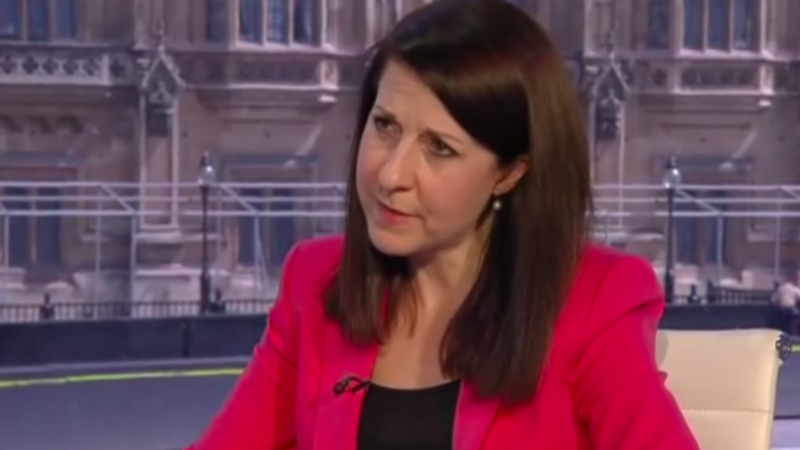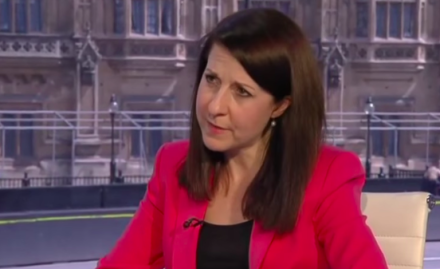
By Tom Happold and Conor Pope

“It broke my heart a bit at the weekend. How nervous people are, how worried they are.” Liz Kendall is back in London after a thirteen stop, three-day tour of the country. “I spoke to a council candidate who said he’d already been threatened with deselection because he’d publicly said he would support me. That’s unacceptable.”
Kendall fears the phenomenon of the Cybernats has spread to the rest of the UK, with supporters of Jeremy Corbyn increasingly intolerant and vitriolic towards others in the Labour Party, particularly online. “I’ve met a lot of party members who are really worried about speaking out, worried about what abuse might be hurled at them.”
While Kendall appears genuinely concerned that the contest has turned nasty, she seems to accept she is heading for fourth place. Unlike a lot of politicians she does not try to argue that victory is imminent when all the evidence says otherwise. “I’m trying to convince people that I’m the best person to lead the party, but I admit I’ve a hell of a long way to go,” she tells us.
We met her yesterday in a café beside the BBC, where she spent some of the day doing radio interviews. She would not comment about reports that there have been discussions about her and Yvette Cooper dropping out of the contest, to give Andy Burnham a clear run against Corbyn, and she is cagey about her second preference.
“I have said that people should use their second and third preference for Andy and Yvette, or Yvette and Andy. I can’t pretend I’m agnostic about Jeremy Corbyn being leader of the Labour Party because I don’t think he’ll win in 2020, and that’s what I want us to do.”
After a strong start to her campaign, Kendall got stuck with the tag “Blairite”, which she never succeeded in shaking off. That is a shame, as her politics are more interesting than that. Whether you agree with her or not, Kendall has genuinely radical things to say about decentralisation and putting power into the hands of ordinary people.
“My big message is that I want to win power in order to give it away. I want us to go back to our roots as a party, which was ordinary people coming together in order to help themselves and one another in trade unions, cooperatives and mutuals. We are far too centralised a party, and much too centralised a state. I want a radical devolution of power and control.”
Kendall says she was initially inspired when she studied citizens’ juries in 1993 and found that “ordinary people make brilliant decisions about how local services should be run.” And she has subsequently been impressed by what Labour councils are doing to involve people in the running of public services. She cites Lambeth’s community energy schemes and Oldham, which is looking into creating social care cooperatives.
Kendall even believes worker participation can change the historic short-termism of the British economy. She wants to see employees have a much greater say in how their companies are run, with representation not just on remuneration committees. “I think employees often focus more on the long-term than share holders do, they look at putting the profits back into training.”
But Kendall is unapologetic about how her campaign has gone. “I’ve always told it how I think it is.” And she believes that people on the centre and right of the Labour party should speak up more for what they believe in.
“I think what I consider the moderate wing of the party for too long has allowed the assumption that we’re just pragmatists – we just want to win. Well we do damn well want to win but we have deeply held principles too. People can have both. People can vote for both principles and power. Be proud of that, never be frightened of saying what you believe.”




More from LabourList
Government abandons plans to delay 30 local elections in England
‘The cost of living crisis is still Britain’s defining political challenge’
‘Nurses are finally getting the recognition they deserve’